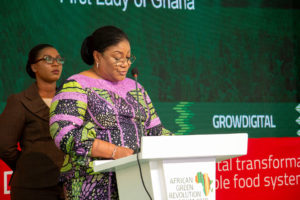Women leaders in Africa vow to end malnutrition using best tested strategies
In 2020, leaders from around the world will convene in Japan to take stock of their Nutrition for Growth progress. Nutrition for Growth is a health strategy developed at Summit in 2013, when health ministers from around the world met in London and committed to…
In 2020, leaders from around the world will convene in Japan to take stock of their Nutrition for Growth progress. Nutrition for Growth is a health strategy developed at Summit in 2013, when health ministers from around the world met in London and committed to reducing malnutrition by 2025 through the achievement of global targets set at the World Health Assembly.
With Africa being among the regions that are severely hit by malnutrition and undernutrition, the continent will remain in the spotlight until the 2020 summit. Africa is the only continent in the world where children are both stunted and obese – about 60 million African children under five are stunted while 10 million others are classified as overweight. Faced with such data, African women leaders have promised to combine efforts in fighting malnutrition and hunger.
“We need to meet our nutrition targets ahead of the 2020 Summit in Japan and we can achieve this by combining efforts and allocating the resources needed to achieve success,” said H.E. Rebecca Akufo-Addo, the First Lady of Ghana, at a session planned to discuss the nutrition situation in Africa during 2019 AGRF in Accra.
 Hon. Gerda Verburg, Coordinator of the Scaling Up Nutrition (SUN) Movement, noted that the best place to start on this path is through the blending of farming with nutrition education goals.
Hon. Gerda Verburg, Coordinator of the Scaling Up Nutrition (SUN) Movement, noted that the best place to start on this path is through the blending of farming with nutrition education goals.
“Nutrition is a matter of agricultural food production, as well as awareness building. Increasing yields is one thing because it will ensure an adequate supply of food, and education is the other – training people on how to combine foods for proper nutrition,” said Verburg.
Ms. Verburg reinforced her comments by quoting an earlier statement by H.E. Mrs. Akufo-Addo to the effect that for more success in the nutrition environment, African leaders need to change their thinking “from feeding to nourishing people”.
Ethiopia’s First Lady H.E. Roman Tesfaye, quoting success stories from her country, says a multiplicity of efforts is required to hasten the process to the goal of ending malnutrition in the continent.
“All industries related to the food value chains have to be integrated in such ways that we have a constant and balanced supply of food,” said H.E. Tesfaye.
“With food availability then we proceed to track the progress of individuals’ health at all stages of life ensuring that they are supplied with the required nutrients to support healthy growth and living.”
Exemplifying how proper nutrition at the early stages of life can be achieved using locally available foods, Vera Osei-Bonsu, founder of the Start Right Infant and Child Nutrition Network (SRICNN) detailed how she, for example, combines breast milk with sweet potatoes to raise healthy infants.
Ms. Osei-Bonsu now runs a successful social media network on which she trains over 70,000 followers to prepare healthy meals using local foods. She also has published a cookbook focusing on the preparation of meals for infants and babies, in addition to creating her own line of baby foods that she distributes around Ghana.
Among the other speakers at the session was H.E. Nane Annan, of the Kofi Annan Foundation, who insisted on collaboration between African governments in pursuing sustainable food systems.
Our food system is bankrupting our health system due to too much attention to production and calories and not enough to nutrition tells Gerda Verburg @SUN_Movement at the #AGRF2019 Investing in nutrition is a win for people, countries and environment @afs_asa, @IDRC_CRDI pic.twitter.com/jTXogTbWbC
— Renaud De Plaen (@rdeplaen) September 5, 2019
